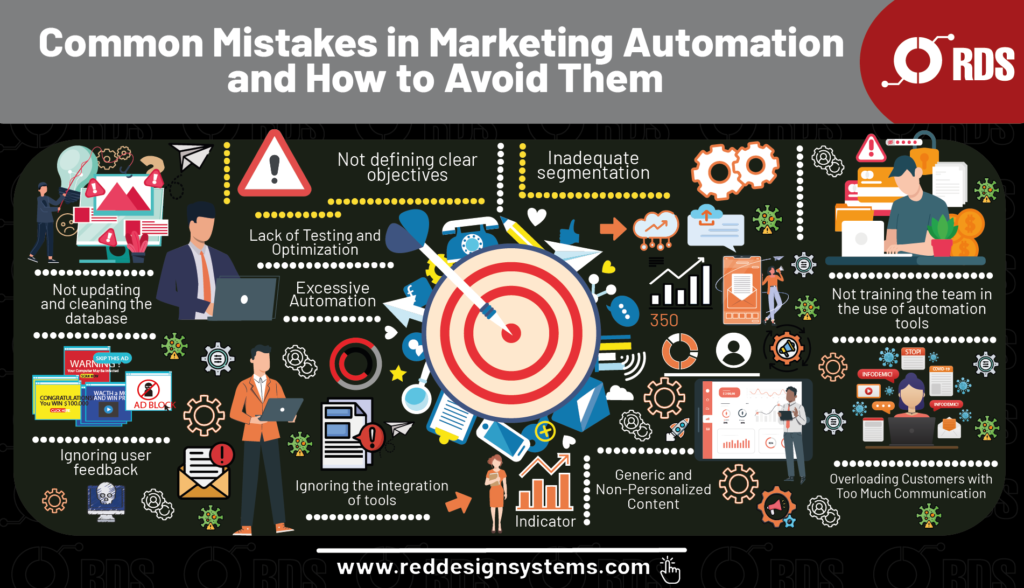We recently talked about the keys to a successful marketing automation process. As you already know, automation can transform the way your company interacts with customers, improving efficiency and increasing revenue. However, like any strategy, its implementation is not without its challenges.
That’s why today we want to stress the importance of doing it effectively and explore the most common mistakes in the process, and some essential secrets to avoid them.
1. Failure to define clear objectives
One of the most common mistakes is to start automation without clear and defined objectives. Without a specific objective, it is difficult to measure the success of automation campaigns.
How to avoid it: Before implementing any automation tool, clearly define what you hope to achieve. This may include increasing conversion rates, improving customer retention, or increasing the efficiency of the marketing team. Establish key performance indicators (KPIs) to measure progress toward these goals.
2. Inadequate segmentation
Lack of proper segmentation can lead to sending irrelevant messages to customers, which can result in low open and conversion rates.
How to avoid it: Use behavioral and demographic data to effectively segment your audience. CRM and analytics tools can help create segments based on interests, buying behavior, and other relevant metrics. Personalize messages for each segment to increase relevance and engagement.
3. Generic and non-customized content
Sending generic content to all contacts can cause your messages to get lost in the noise. Lack of personalization can result in a disconnect with your audience.
How to avoid it: Use automation to personalize messages based on user behavior, purchase history, and other relevant data. Advanced marketing tools allow you to create dynamic content that is tailored to each customer’s individual needs and preferences.
4. Excessive automation
The temptation to automate everything can lead to less-than-human interactions and the loss of the personal touch that customers value.
How to avoid it: Balance automation with human interactions. Use automation for repetitive tasks and processes that benefit efficiency, but be sure to include personal touches at key moments in the customer journey, such as personalized follow-ups and customer service.
5. Lack of testing and optimization
Implementing automated campaigns and not reviewing and optimizing them regularly can lead to suboptimal results.
How to avoid this: A/B test and experiment with different approaches to see what works best. Continually monitor campaign performance and adjust strategies as needed. Constant optimization is key to improving results over time.
6. Ignoring tool integration
Lack of integration between different tools and platforms can cause inefficiencies and errors in campaign execution.
How to avoid it: Make sure all your marketing and sales tools are integrated. This includes your CRM, email marketing platform, analytics tools, and any other relevant technology. A seamless integration allows for a continuous flow of data and a more complete view of customer behavior.

To conclude
It is clear that technology is a very powerful tool, but it is also key to remember that processes must work with or without the help of it, and that prior planning is essential. Like any business process, marketing automation is a fundamental step in strengthening your business operations and ensuring ROI, so it’s worth taking the time to do it properly.
Making adjustments to processes is essential to achieve a good return, which is why it is key to identify the areas where mistakes are being made and, above all, correct them in order to move forward.
Let’s talk
Do you need to automate your marketing actions or optimize the process you already have in place?





